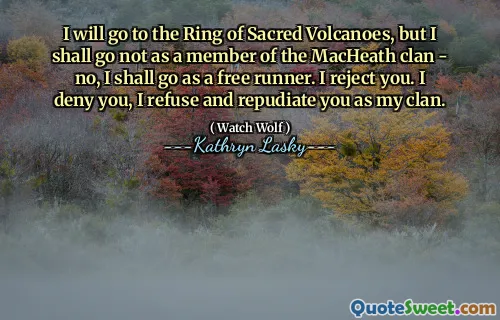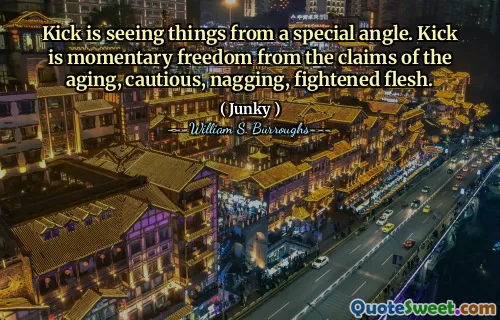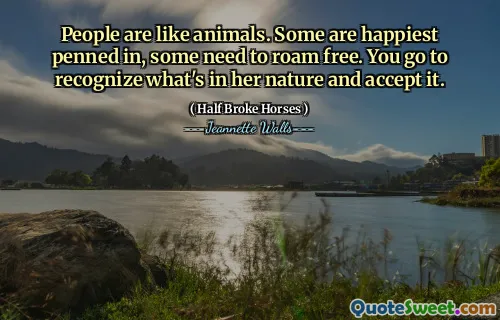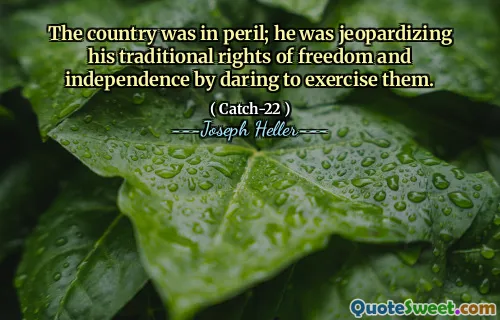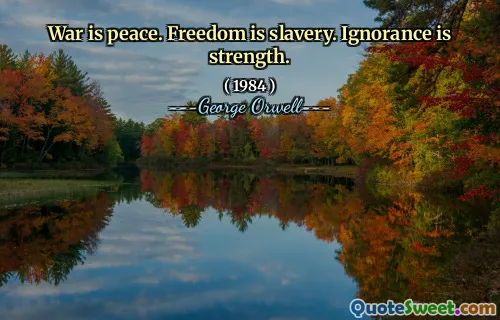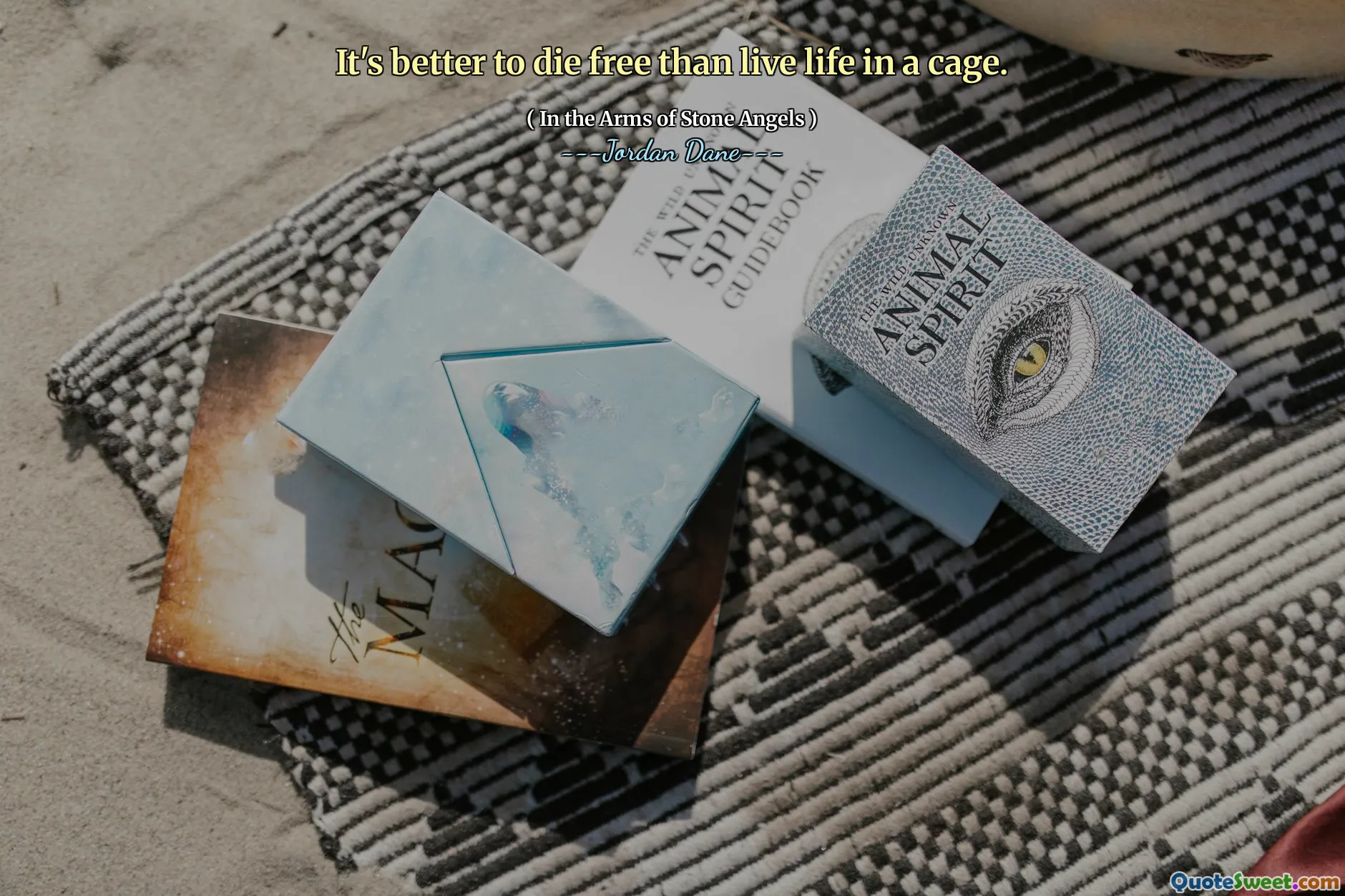
It's better to die free than live life in a cage.
This evocative statement underscores the profound human instinct for freedom and self-determination. Throughout history, individuals and communities have shown an unwavering desire to break free from physical, mental, or societal constraints, even at the cost of their lives. The metaphor of dying free versus living in a cage captures the essence of valuing autonomy over mere existence within limitations. In the context of the narrative from 'In the Arms of Stone Angels' by Jordan Dane, the quote resonates deeply with themes of rebellion, the struggle for identity, and the refusal to accept oppression. The idea suggests that while life in captivity or under oppressive circumstances might offer survival, it often denies the soul's fundamental yearning for liberty. Embracing freedom often involves sacrifice, and this statement elevates personal sovereignty as a highest virtue, sometimes more vital than life itself. It prompts reflections on what it truly means to be alive— does it merely entail physical survival, or does it encompass the pursuit of inner truth and the courage to stand apart from societal cages? Such a perspective encourages us to evaluate our own lives: are we living authentically within our personal cages, or are we daring to seek liberation, risking everything for the sake of authenticity? Ultimately, the quote champions the indomitable spirit that refuses to accept subjugation and celebrates the strength found in choosing freedom over safety or conformity. It reminds us that sometimes, the greatest act of bravery is to fight for the freedom of the soul, even when the odds are insurmountable.

